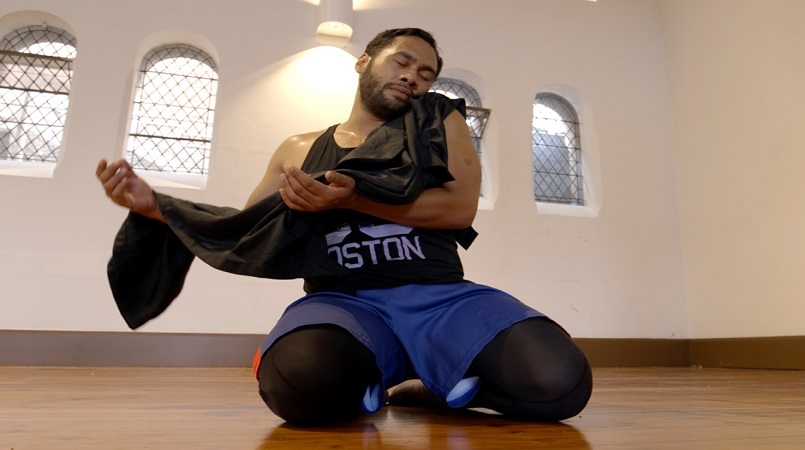
Samoan-born actor Ray Chong Nee is taking the Australian stage by storm.
He talks to ABC Australia Plus about his latest role in a retelling of Albert Camus' classic, 'The Outsider,' and the challenges faced by non-white actors in Australia.
When Ray Chong Nee began his studies at the University of Southern Queensland, he planned to become a voice actor in animated movies.
“I never once thought in my acting training ... that I’d be a classical actor,” he says. But as as he perfected his art, it became clear that he showed an unusual aptitude for tragic roles, like Shakespeare’s Othello for instance.
Now 32, he’s been cast as Meursault, the antihero of Albert Camus’ famous novel, 'The Outsider' as adapted by Colin Duckworth for Stork Theatre. It’s the type of lead role most often reserved for Caucasian actors, a fact that’s not lost on Ray Chong Nee.
“Initially when I was asked by Helen Madden (the director of the Stork Theatre) to participate in this show, she had seen my prior works and she felt that I had the ability to play such a character,” he says. “So for her, this doesn’t matter,” he points to the skin of his arm.
“Going up for roles, it’s hard. Australian theatre is not necessarily racist but there are not enough writers being able the stories that need to be told. More often than not their perspective is Caucasian. It is also very masculine.”
“Was it a colour blind casting? I guess you could say that but I think it’s just because I’m awesome” he laughs.
Director James Jackson describes the play as being about “a man who’s alienated from his society and he’s pushed to the boundaries and the fringes so much so that he loses meaning or objective to his own life.”
“He discovers that life is essentially absurd but that you can still find happiness in that absurdity.”
For Ray, it’s one of the greatest challenges of his career. “A story can touch you and make you feel just as debilitated or happy or exulted because it’s the human condition that we’re talking about,” he says. “So I guess it’s that magic that drives me, to be able to do that to someone and to be able to have someone do that to me. That’s a feeling that you can’t get anywhere else."
"You may be able to go to a football match but you can’t get this imagination that happens in theatre.”
In the future, Ray hopes to continue to challenge stereotypes – he’s particularly interested in bringing some of his own heritage to the stage.
“My Samoan culture, it was always a badge that I wore, but it wasn’t something I promoted,” he says.
“[But] There are a lot of stories out there which are not being told. Now I feel that now I’m in a position where I can (say), actually, ‘here’s a little story for you, it comes from this part of the world, like Samoa, like New Zealand, throughout the Pacific’, also in Asia, they have stories that are very similar, stories of an Othello-type character in Samoa, or an Oedipus-type character in Samoa.
He hopes he can make the journey a little easier for upcoming actors who follow in his footsteps.
“I feel this responsibility where I’m now at a place where I can probably start to make little waves and support another person that’s underneath me to come up," he says. "They say it takes a village to bring up a child and I think that’s the same thing that happens with theatre.”
